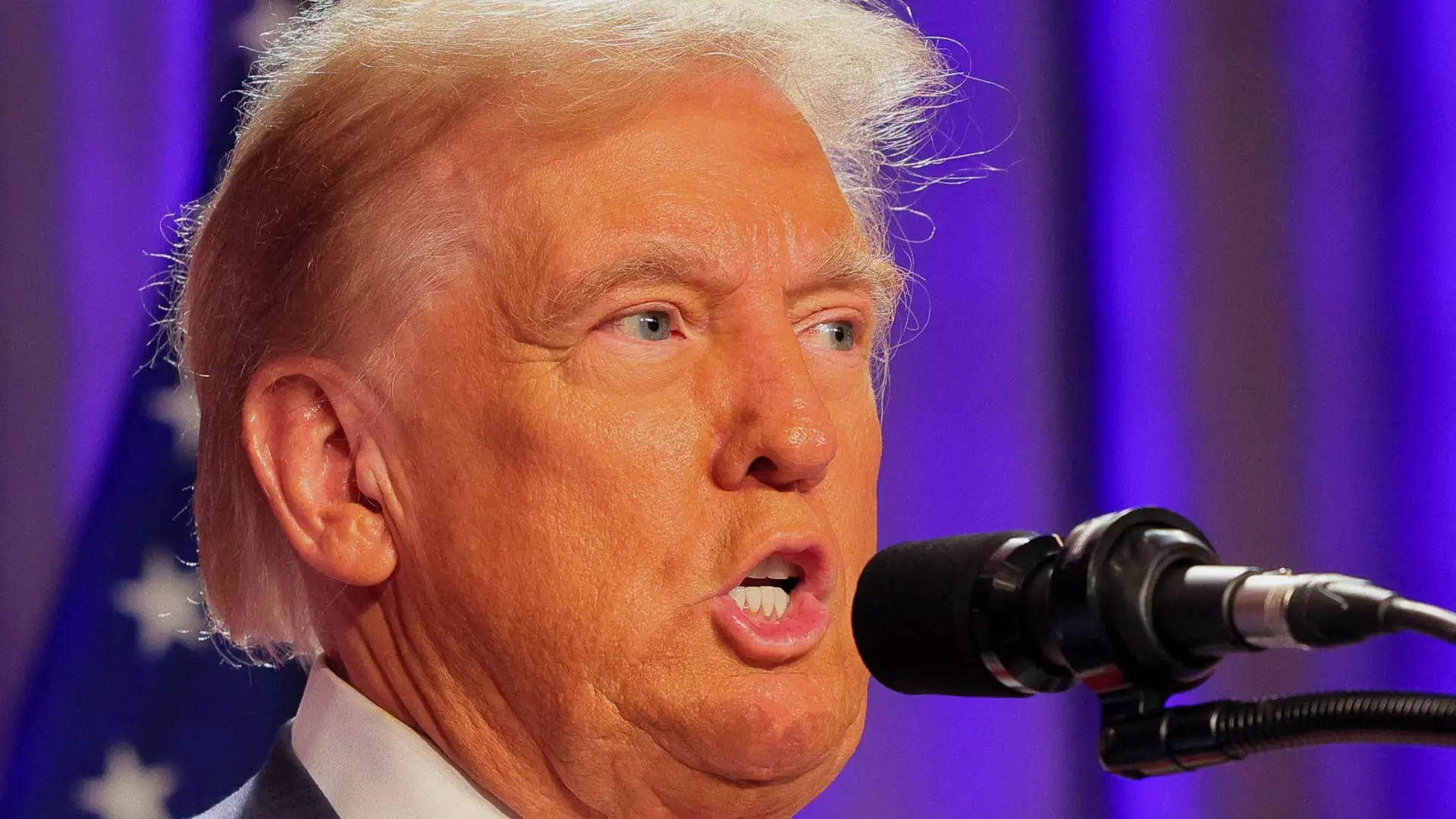As Donald Trump steps into the role of president-elect once again, a shift in the U.S. approach to foreign policy looms on the horizon. In a revealing interview on NBC’s “Meet the Press,” Trump provided insight into how he envisions U.S. military and economic support for Ukraine amidst the ongoing conflict with Russia. His perspectives signal a potential recalibration of alliances, responsibilities, and financial contributions from NATO partners, particularly European nations.
Trump’s Concerns Over European Involvement
One of the main points of contention articulated by Trump is the significant disparity between American and European financial contributions to Ukraine. Since the inception of the conflict in February 2022, the U.S. has committed over $62 billion in assistance, while Europe’s contributions have only amounted to around $100 billion. This imbalance raises questions about the commitment of European allies to collective security and the principle of shared responsibility within NATO. “Europe is in for a fraction, and war with Russia is more important for Europe than it is for us,” Trump remarked, emphasizing the geographical and strategic distance he believes grants the U.S. leverage in this debate.
This perspective is not new and echoes Trump’s previous criticisms of European nations failing to pull their weight in NATO operations. He suggested that unless European nations equalize their financial contributions, the U.S. strategy may not only be reevaluated but could also lead to a reduction in aid to Ukraine. Trump’s argument challenges the long-held belief that the U.S. remains the primary custodian of NATO’s collective security mechanisms.
Trump acknowledged the diplomatic skills of Ukrainian President Volodymyr Zelenskyy, who he referred to as “maybe the greatest salesman of any politician that’s ever lived.” While this remark may appear flattering, it subtly insinuates that the substantial U.S. support might stem more from Zelenskyy’s persuasion rather than Ukraine’s pressing requirements. This perspective could undermine the narrative of Ukraine as a nation fighting valiantly for its sovereignty and democracy against an imperial force.
Furthermore, Trump’s strong ties with Russian President Vladimir Putin hint at a possible re-evaluation of U.S.-Russia relations under his administration. He emphasized his belief that he could quickly mediate an end to the conflict, even stating, “I know Vladimir well. This is his time to act.” The insinuation that China might play a significant role in this potential negotiation process introduces a new element to the geopolitical dynamic surrounding the crisis.
During the interview, Trump reiterated his previous stance on NATO members fulfilling their financial obligations. This statement aligns with his longstanding criticism of what he perceives as an inequitable burden-sharing arrangement within the alliance. Trump’s history of suggesting withdrawal from NATO if partner nations do not meet their defense spending commitments adds another layer of complexity to U.S. foreign policy moving forward. Such an approach could reverberate across Europe, compelling leaders to reexamine their military capabilities and financial commitments to NATO.
In a world increasingly marked by geopolitical tensions, the implications of Trump’s foreign policy take could shift the focus away from multilateral cooperation to a more transactional approach that places the U.S. at the center of negotiation dynamics. This trend would require a reevaluation of how alliances are perceived and operationalized, potentially weakening the traditional unity that NATO embodies.
Trump’s Broader Foreign Policy Strategy
In addition to Ukraine, Trump’s statements reflected a broader foreign policy vision that encompasses regional conflicts, such as the Syrian civil war. His dismissal of Russia’s previous role in Syria, emphasizing that “Assad is gone,” illustrates his inclination to pivot U.S. attention towards pressing geopolitical matters. This pivot could suggest a propensity for a more isolationist approach regarding U.S. military interventions abroad.
While the future remains uncertain, Trump’s pronouncements on foreign policy may lead to significant changes in how the U.S. navigates its international obligations and engagements. If he maintains the same philosophy, it could ultimately redefine relationships with key allies and adversaries alike, signaling the dawn of a new era shaped by different expectations and responsibilities.
As Trump prepares to reassume power, his views on foreign aid, NATO contributions, and diplomatic negotiation will likely catalyze a notable transformation in U.S. foreign policy, with potential implications that extend well beyond Ukraine. The world watches as an era characterized by Trump’s unpredictable yet assertive style of leadership reshapes the landscape of international relations.


Leave a Reply